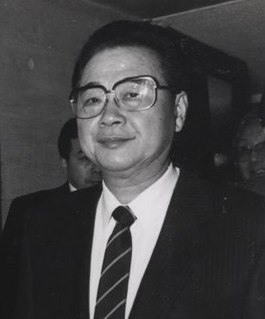A Quote by Li Peng
There are nearly 200 countries and a population of over 6 billion in today's world. International affairs should be addressed by all countries through consultations rather than monopolised by a few powers.
Related Quotes
Industrialized countries have disproportionately more cancers than countries with little or no industry (after adjusting for age and population size). One half of all the world's cancers occur in people living in industrialized countries, even though we are only one-fifth of the world's population. Closely tracking industrialization are breast cancer rates, which are highest in North America and northern Europe, intermediate in southern Europe and Latin America, and lowest in Asia and Africa.
Which countries contain the most peaceful, the most moral, and the happiest people? Those people are found in the countries where the law least interferes with private affairs; where the government is least felt; where the individual has the greatest scope, and free opinion the greatest influence; where the administrative powers are fewest and simplest; where taxes are lightest and most nearly equal
The reality is that [Barack] Obama has some 15 countries in the current Libya coalition. President Bush put together close to 50 countries for the Afghan coalition, some 40 countries for the Iraqi coalition, more than 90 countries for the Proliferation Security Initiative and over 90 countries in the Global War on Terror.
If the level and amount of consumption and waste of the western rich countries ever reaches the poor countries, it will mean the end of humanity. The big world corporations are busy doing it...The production, selling, consumption, accumulation, wastes' and advertisement explosions in the western rich countries and the continued population explosion in the poor countries will turn into major catastrophes.
More than 180 countries around the world have ratified CEDAW, some with reservations. While the United States signed the treaty in 1981, it is one of the few countries that have not yet ratified it. As a global leader for human rights and equality, I believe our country should adopt this resolution and ratify the CEDAW treaty.
The United Nations remains the sole universal international organisation designed to maintain global peace. And in this sense it has no alternative today. It is also apparent that it should adapt to the ever-changing world, which we discuss all the time: how it should evolve and at what rate, which components should undergo qualitative changes. Of course, I will have to or rather should use this international platform to explain Russia's vision of today's international relations, as well as the future of this organisation and the global community.
World dictatorship can be established only when the victory of socialism has been achieved in certain countries or groups of countries ... [and] when these federation of republics have finally grown into a world union of Soviet Socialist Republics uniting the whole of mankind under the hegemony of the international proletariat organized as a state.



































